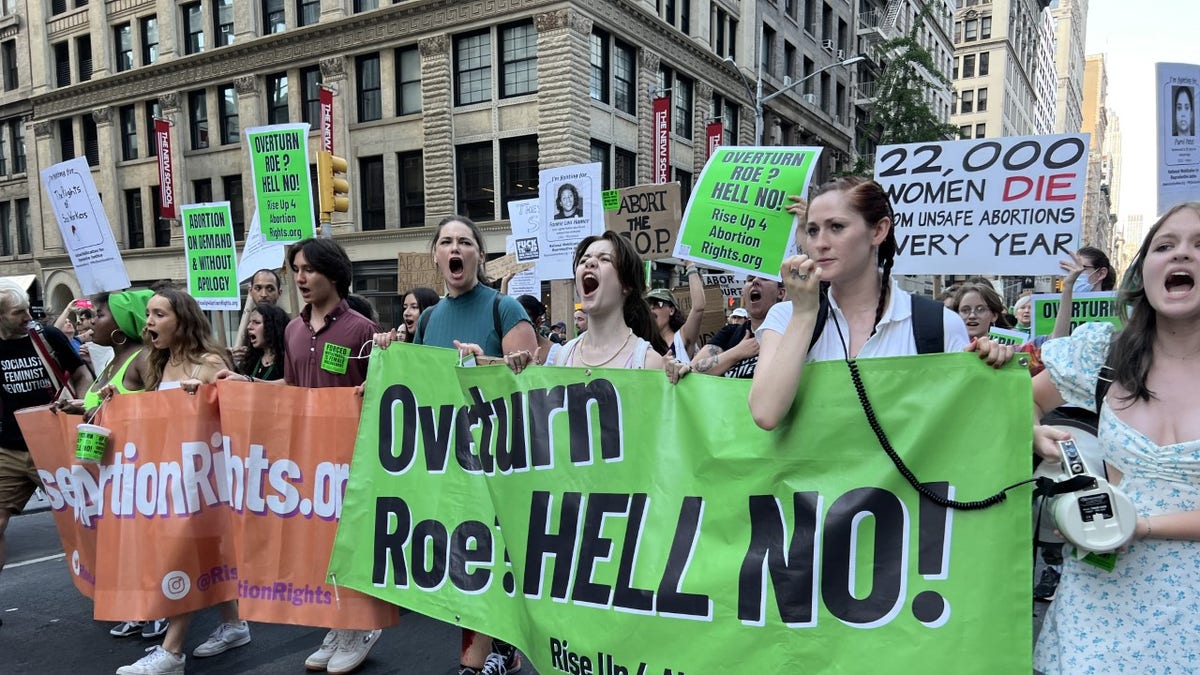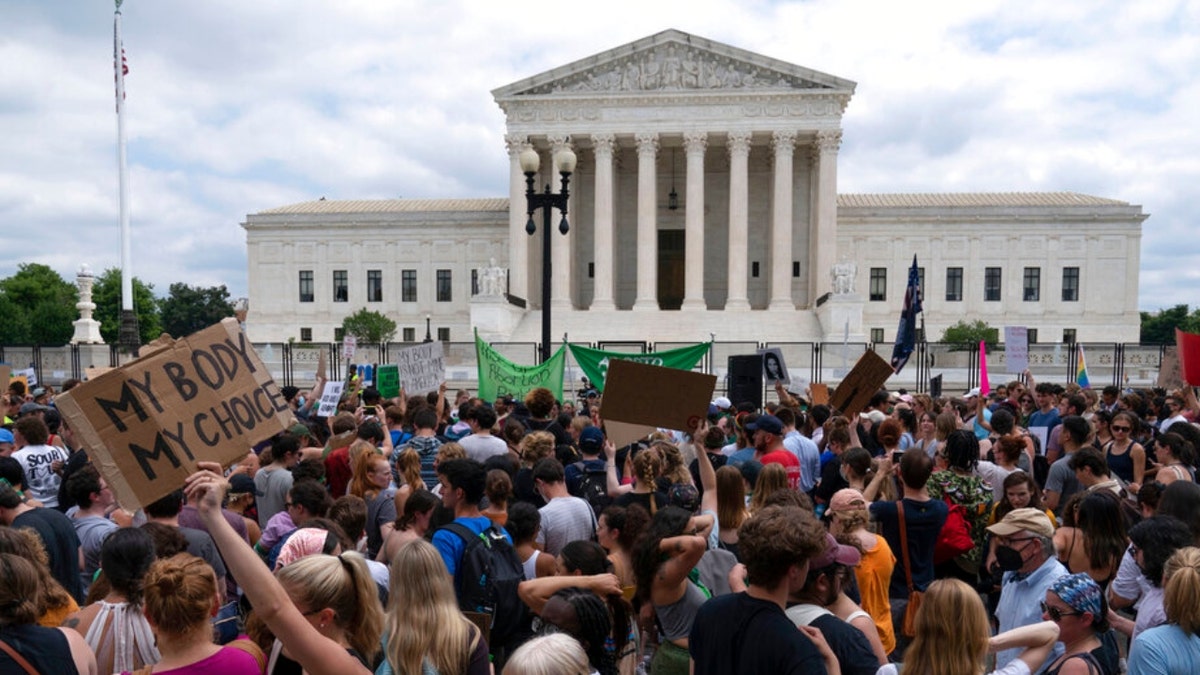New York Times guest essayist Michele Goodwin claimed the Supreme Court's Roe v. Wade reversal is akin to "sexual subordination" and "forced pregnancies" used to subvert Black girls and women who were enslaved.
"If cotton was euphemistically king, Black women’s wealth-maximizing forced reproduction was queen," she wrote in the Sunday piece.
Goodwin, a law professor at the University of California-Irvine, additionally claimed the decision to reverse the 1973 ruling is also a violation of the Constitution's 13th and 14th amendments since "ending the forced sexual and reproductive servitude" of Black girls and women was integral to their passage.
"The overturning of Roe v. Wade reveals the Supreme Court’s neglectful reading of the amendments that abolished slavery and guaranteed all people equal protection under the law," Goodwin wrote, adding, "It means the erasure of Black women from the Constitution."
SUPREME COURT OVERTURNS ROE V. WADE IN LANDMARK OPINION

The entrance to the New York Times building in New York City. (Don Emmert/AFP via Getty Images)
The article went on to describe the risky connotations of "forced" pregnancy that will allegedly ensue following Roe v. Wade's reversal, including its violation of the Constitution's enumerated powers, and of the 13th Amendment's "prohibition against involuntary servitude and protection of bodily autonomy."
According to Goodwin, the alleged constitutional violations continue by subverting the "defense of privacy and freedom" found within the 14th Amendment.
"This Supreme Court demonstrates a selective and opportunistic interpretation of the Constitution and legal history, which ignores the intent of the 13th and 14th Amendments, especially as related to Black women’s bodily autonomy, liberty and privacy which extended beyond freeing them from labor in cotton fields to shielding them from rape and forced reproduction," Goodwin wrote.

Protesters in New York City demonstrate against Roe vs. Wade being overturned. (Peter Gerber/Fox News Digital)
"The horrors inflicted on Black women during slavery, especially sexual violations and forced pregnancies, have been all but wiped from cultural and legal memory," she added.
Friday's Roe v. Wade reversal also poses a greater "disservice" to "women, girls and people capable of pregnancy," the piece alleged, before falling back on additional allegations that the Dobbs v. Jackson Women's Health decision will "exacerbate" existing feminine health concerns, including maternal mortality rates, and would lead women to experience the risks associated with pregnancy (i.e. gestational diabetes, gestational hypertension, etc.) more than before.
"Disproportionately, those who will suffer most are poor women, especially Black and brown women," she wrote, adding that "Black women are over three times as likely to die by carrying a pregnancy to term than white women. In Mississippi, a Black woman is 118 times as likely to die by carrying a pregnancy to term than by having an abortion," and linking to a CDC report on ethnic and racial disparities in healthcare.

Pro-choice protesters gather outside the Supreme Court in Washington, Friday, June 24, 2022. (AP Photo/Jose Luis Magana)
Further along, the piece tied back into the Roe v. Wade reversal's direct comparison to slavery, writing that today's Supreme Court "strategically overlooks" the "terrifying practices of American slavery, including the stalking, kidnapping, confinement, coercion, rape and torture of Black women and girls" that legal history allegedly calls to mind.
CLICK HERE TO GET THE FOX NEWS APP
Goodwin closed with a jab at states with "trigger" laws, accusing them of punishing women and girls who want to terminate a pregnancy and noting the court's sin of "ignoring" the "deadly traps" in which these states "historically placed Black women."






















